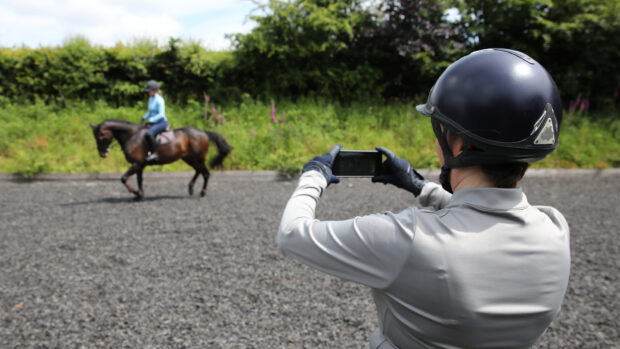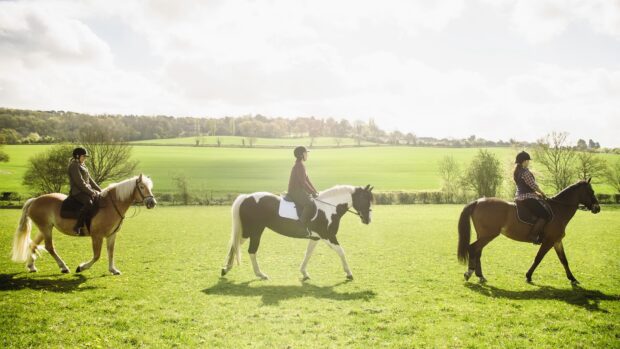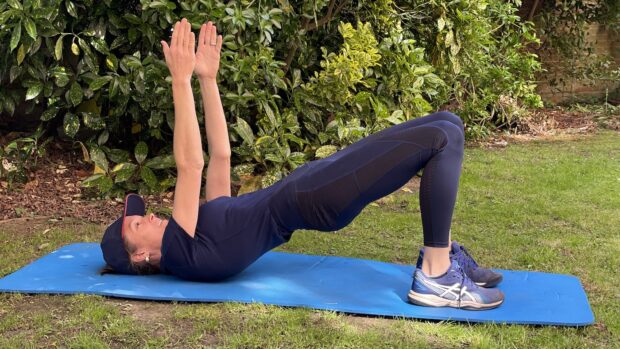Looking after horses is physical work — and whatever age you are, aches and pains are all too familiar. Physiotherapist Nikki Robinson gives her expert advice on how to reduce any tension and pain
Do you struggle to straighten up after picking out your horse’s hooves?
Pain and stiffness in your lower back is often caused by your psoas muscle. It is one of your core muscles and you have one on each side; from the front of your hips, through your pelvis and attaching to the front of your lower spine. Its main action is hip flexion but it also helps to stabilise the base of your spine.
When psoas muscles are tight, they put a lot of strain on the whole area, increasing pain and tightness in other muscles and making it difficult for you to stand or lie straight. They tighten up in response to trauma — for example falls, or irritation from using your back incorrectly, like when mucking out.
If the muscles around your pelvis are tight they will gradually pull your pelvic bones out of alignment, making you feel like one leg is longer than the other or that you can’t sit with your weight evenly distributed. If you are told that you sit to one side when you are riding, or if your stirrup leathers are different lengths, the chances are that your pelvis is rotated.
Four ways to help yourself
1. Listen to your body
Muscles usually tighten up before they get painful, so use it as a warning that your body is not happy. This may be difficult if you normally live with pain and tension, but if you can tune in and follow your body, it will be much easier to prevent injury.
2. Stretch
This is the best way of reducing tension that has built up and you can use it whenever you need to, wherever you are. The simple rules to follow are:
- Never stretch into pain — stop when you feel resistance
- Gently hold the stretch at your barrier until you feel it soften or lengthen
- Follow your body to find the next point of resistance
3. Ask for help
I know that everyone on the yard is trying to get their own jobs done as quickly as possible. But in a recent survey of horse riders 100% of respondents said they have pain, so what if you could team up with someone else and help each other with the heavy jobs?
4. Get treated
Treatment to realign your pelvis and release your muscles will allow you to do more with less pain. This may be hands-on therapy such as myofascial release, or exercises like yoga or pilates.
Continued below…

5 top tips for improving your riding fitness (while you’re in the office)

Subscribe to Horse & Hound magazine today – and enjoy unlimited website access all year round
The expert
Nikki Robinson is a horse owner and specialist physiotherapist. She qualified as a physiotherapist in 1993 and founded her myofascial release practice, Holisticare in 2006. Find out more at holisticare.co.uk
Would you like to read Horse & Hound’s independent journalism without any adverts? Join Horse & Hound Plus today and you can read all articles on HorseandHound.co.uk completely ad-free.



